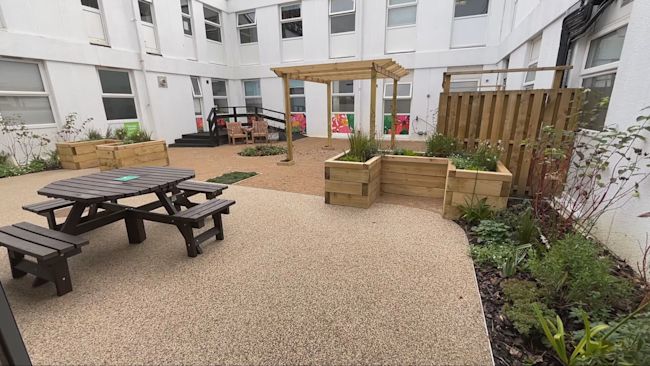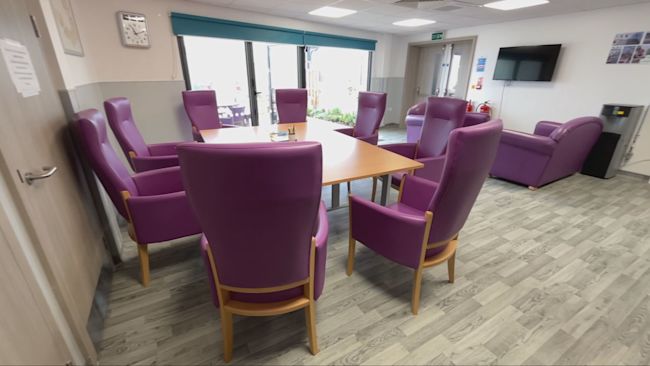THIS is what's wrong with our stroke medical 'professionals'! They start out just improving recovery, RATHER THAN DELIVERING RECOVERY! Whomever approved that needs to be fired!
New £1m stroke rehab unit opens at Frimley Park Hospital to improve patient recovery
A new £1m stroke rehabilitation unit has been officially opened at Frimley Park Hospital, while a national campaign looks to shorten the time between a stroke and dialling 999.
Funded by Frimley Health Charity and donations from the public, the new extension to the hospital is designed to improve patient experience and recovery times.
With a specially-designed garden and dedicated therapy rooms, the new stroke rehab unit allows medical staff to give the 'best care possible' to their patients.(NOT RECOVERY!)
Consultant Dr Tom Pain said: "Before this ward open all the therapy was done in ward bays and there is very little privacy so this allows the therapist to take the patients out of the ward environment to deliver the therapy sessions."

A common misconception about strokes is that they mainly affect older people, but they can happen to anyone.
The latest figures from Public Health England show the average age of stroke victims is getting younger.
Claire Woodward was admitted to Frimley Park Hospital after suffering a stroke on 14 October.
She said: "I can come into the day room to see my children and grandchildren and I use the therapy rooms with the occupational therapist - so it's made a big difference."
Around 100,000 people have a stroke each year in the UK, which occurs when the blood supply to part of the brain is cut off.
The current stroke service at the hospital looks after more than 100 people every month, and it is hoped the bigger and better unit will become a national centre of excellence for stroke care.

OT Suzanne Barber said: "Some of our patients are on the stroke ward for two to three months and being in that environment all the time is really, really difficult.
"So it just allows people to step off of the ward and not be stuck in that ward environment. Psychologically it's good for people's wellbeing."
Without fast treatment a stroke can result in death or long-term disabilities such as paralysis, memory loss and communication problems.
The new unit comes as the NHS launches a campaign which aims to improve the time between the onset of a stroke and emergency services being called.
New analysis of NHS data shows that for 2023-24, of 41,327 patients with a recorded time of symptom onset, the average time between first symptom and a 999 call being made was 88 minutes.
How to identify a stroke (source: Stroke Association)
The FAST acronym (Face, Arms, Speech, Time) is a test to quickly identify if someone is having a stroke.
Face weakness: Can the person smile? Has their mouth or eye drooped?
Arm weakness: Can the person raise both arms?
Speech problems: Can the person speak clearly and understand what you say?
Time to call 999: if you see any of these signs.
Dr David Hargroves, NHS national clinical director for stroke and consultant stroke physician, said: “When someone has a stroke, it’s estimated they may lose around two million brain cells a minute, which is why rapid diagnosis and treatment is critical – the first sign of a stroke might not seem like much, but face or arm or speech, at the first sign it’s time to call 999.
Media medic and GP, Dr Amir Khan said: “A stroke strikes every five minutes in the UK, so it’s crucial everyone is aware of the most common symptoms of a stroke and acts FAST by calling 999.
"The first sign of a stroke actually might not seem like much, but every minute is vital – getting quick access to specialist treatment can be lifesaving and can reduce long-term disability. Whether someone is unable to raise their arm, struggling to smile or slurring when they speak – any sign is always an emergency and you need to call 999 immediately.”
No comments:
Post a Comment